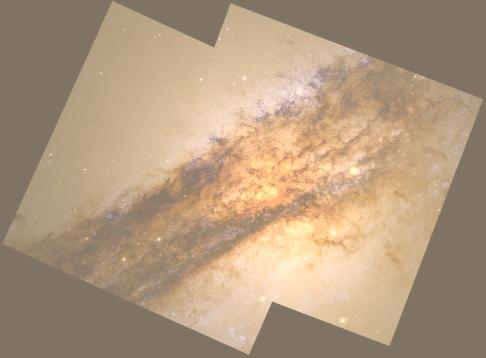Figure 3.
Hubble Space Telescope image of the core of the nearest radio galaxy, Centaurus A (19). A billion M⊙ black hole in the center of this galaxy squirts jets to the upper left and lower right, which dissipate in large radio lobes (not visible in this optical image). Note the high level of obscuration evident in the image, which is common for radio galaxies and Seyfert II galaxies. The nearest two Seyfert galaxies to us, NGC 4945 and the Circinus galaxy, at about the same distance as Centaurus A but in different directions, also show large levels of obscuration.

